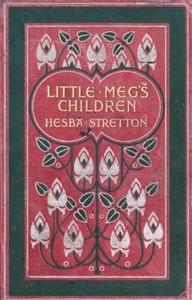Read this ebook for free! No credit card needed, absolutely nothing to pay.
Words: 16683 in 6 pages
This is an ebook sharing website. You can read the uploaded ebooks for free here. No credit cards needed, nothing to pay. If you want to own a digital copy of the ebook, or want to read offline with your favorite ebook-reader, then you can choose to buy and download the ebook.


: Punch or the London Charivari Vol. CL April 26 1916 by Various Seaman Owen Editor - English wit and humor Periodicals Punch
Preface 11
Documents of 1759-1765
Bibliographical Data 347
Plan of Manila Bay, October, 1762; photographic facsimile from copy in British Museum Frontispiece Manila and the Philippines, 1762; from Scots Magazine, 1763, xxv, facing p. 224; photographic facsimile from copy in library of Harvard University 35 Chart of Philippines, showing path of Manila galleon; from London Magazine, 1763, xxxii, p. 292; photographic facsimile from copy in Library of Congress 49 Plan of city of Manila, showing sites occupied by the British in 1762; photographic facsimile of original manuscript in Archivo general de Indias, Sevilla 95 Plan of city of Manila and its fortifications, 1762; from Le Gentil's Voyage , ii, plate 6; photographic facsimile from copy in library of Wisconsin Historical Society 107 Plan of port of Cavite and its fortifications, by Tom?s de Castro y Andrade, ca. 1762; photographic facsimile of original manuscript , in Archivo general de Indias, Sevilla 183 Plan of Mariveles Bay, 1764; in collection of Charts by Alexander Dalrymple , ii, p. 63; photographic facsimile from copy in Library of Congress 199 Autograph signature of Simon de Anda y Salazar; photographic facsimile from original manuscript in Archivo general de Indias, Sevilla 285
PREFACE The theme of the present volume is throughout the conquest of Manila by the British in 1762, and events consequent to it. The various accounts we have drawn from both Spanish and English sources, in order that we might present the matter from the standpoints of each nation, and we have aimed to give the story in great detail from as many points of view as possible. The subject must have special interest for Americans by reason of the operations of 1898. In some measure the captures by both the British and the Americans are analogous, because in each case it was rather a side demonstration than the main object of the war, and because of the ease with which it was accomplished. Here, however, the analogy ends, for British occupation was at the best precarious while it lasted, and made scarcely any headway outside of Manila; and while naturally the questions of religion, commerce, and civil affairs generally were discussed, nothing lasting was done. It may well be that the ease with which Manila was taken by the British gave the Filipinos some idea, though slight, of separation from Spain, or a desire for a larger degree of independence; although, in truth, all such ideas appeared to be effectively stifled with the strengthening power of the religious orders. Of special interest will be found the operations of Anda y Salazar, a true patriot, though like the Count de Frontenac, of Canada, of a hasty and impetuous nature; and his contest with the incapable archbishop. It is to be noted throughout that all English dates are one day in advance of the Spanish dates, as the English had the same dates as the Portuguese, who reached the Orient by way of the Eastern route. This is a momentous period in many parts of the world.
The first document in this volume consists of a plan outlined by an unknown writer, but one who has been among the Philippines , for the conquest of the southern islands, evidently received at London November 23, 1762--a good prelude to the conquest of Manila. Weighing the arguments as to the expediency of such a conquest, the author decides in favor of it, as the silver which is taken from the Philippines to India in the Manila-India trade, and which comes direct from America, will pass to India direct from the latter country if the islands are conquered. The present plan, however, does not contemplate the reduction of Manila. The islands could be held either permanently or only until the conclusion of peace, the advisability of taking them to rest upon either one of the following reasons: that they are important enough to meet the expenses of the expedition; or that the enemy can be harassed thence. The chief end for which Spain holds the Philippines is religious, and if the missions are considered, Manila might be ceded, though if that does not happen, the holding of them will be an important item in the peace conclusions. Operations carried on among the southern islands would have especial point, for the Spaniards would fear an alliance between the restless Moros and the enemy. The Spaniards care only about the Acapulco galleon and do not trouble themselves about the rest of the islands, which are governed badly. The natives, in danger from Moro raids, are ripe for revolt. Proceeding directly to a consideration of the southern islands, the writer names and describes the most important of them, making use to some extent, in his description, of Colin and San Antonio. The population that the British would receive by such a conquest would be an advantage. The expedition should proceed first against the fort of Zamboanga, which can be easily taken, and then abandoned and demolished or left in charge of the present Spanish garrison if they will take the oath of allegiance. Next the forts of the islands of Misamis and Ceb? should be taken, both of which are important. They can count upon the help of the Moros, and of the Boholans, the latter of whom are now in revolt. All this can be done with one European ship with about fifty soldiers, and several smaller ships, the best time for the expedition being the northeast monsoon.
THE WATCH DOGS.
MY DEAR CHARLES,--One of these days I will tell you the more intimate history of the Corps to which I have the honour to belong, and this will give you some cause for mirth. Its members are of all sorts, ages and origins, and they have had between them some odd experiences since that first day when, parading hastily in Kensington Gardens, they wished they hadn't been quite so glib, in their anxiety to get to war, about professing full knowledge of the ways and wiles of the motor bicycle. One at least of them paid the price of inexactitude then and there; he still shudders to think how, put to the test, he unintentionally left the Park for a no less fashionable but much more crowded thoroughfare, to arrive eventually, in the prone position, in a byway of Piccadilly, where small fragments of the machine may still be collected by industrious seekers of curios.
Another, whom the low cunning of the Criminal Bar enabled to avoid the immediate test, paid the full price, with compound interest, later on. Casual observers of the retreat, had there been any, would have become familiar with the sight of him bringing up the rear--a very poor last. To see him arrive, perspiring, over the brow of a hill, with his faithful motor at his side, was to know that the Huns were at the bottom of it. On one occasion they even beat him in the day's march, but were too kind or too blind to seize their advantage. As usual he was taking his obsession along with him, though, if he had but known, he might have got it to do the work by the simple formality of turning the petrol tap from OFF to ON. His was ever a curious life, from the first moment of his joining the Army in tails, a bowler hat, and a large sword wrapped in a homely newspaper. But the inward fun of it all is not for the present, Charles; our clear old friends, the Exigencies, forbidding.
So on to the box he got and, with the General's eye always upon his back, he did his best as guide, a task for which his previous career of stockbroker had ill qualified him. The first thing to happen was that the car, proceeding down a narrow lane, got well into the middle of a battalion on the march, which, when the car was firmly jammed amongst the transport, ceased to be on the march, and took a generous ten minutes' halt.... The second thing to happen was a level crossing; which, as they approached it, changed its mind about being a road and became a railway. A nice long train duly arrived, and stayed there, with a few restless movements, for twenty minutes by the clock.... The third thing to happen was that he lost himself ; the fourth was the falling of dusk, and the fifth a ploughed field, with which my friend, alighting, had to confess that he was not so intimately acquainted as he could have wished.
Had there been a scene, he could, he says, have endured the worst bravely, standing to attention and taking it as it came. Not so, however; his was the wrong sort of General for the purpose. As does the partner at the dance, over whose priceless gown you have upset the indelible ice, he said it didn't matter. He said he'd give the division a miss, and return whence they had come. This they began to do, when they had got the car out of the ploughed field, and this they went on doing until the sixth thing happened, which was a burst tyre.
It never rains but it pours, and the area seemed to be infested with Generals of quite the wrong sort. He couldn't have hit upon a more kind and genial and inappropriate one than this. No, he wouldn't allow a word of apology or explanation from this exhausted lieutenant until the latter had rested and refreshed himself with a cup of tea. No, not out of that pot; it had been standing too long. Tea which had stood should not be drunk, for reasons detailed at length. No doubt the Colonel, whose guest he was, would order some more to be made. It would take two minutes--it did take twenty. No, no; there was nothing to say and nothing need be said. It was this General's particular wish that he should be at peace and make himself at home. Let him make his explanations and apologies later.
Free books android app tbrJar TBR JAR Read Free books online gutenberg
More posts by @FreeBooks

: Sleep Walking and Moon Walking: A Medico-Literary Study by Sadger J Brink Louise Translator - Psychoanalysis; Sleepwalking


: Little Meg's Children by Stretton Hesba Copping Harold Illustrator - Christian life Juvenile fiction; Siblings Juvenile fiction; England Juvenile fiction; London (England) Juvenile fiction; Poverty Juvenile fiction






